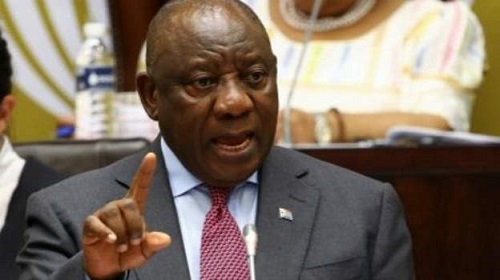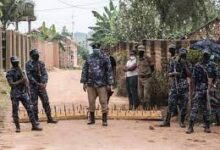
South Africa’s President, Cyril Ramaphosa, will “step aside” if charged over an alleged cover-up of a robbery at his private farm, according to his spokesman.
“Should the president be charged, he would gladly step aside – should it be the case,” presidential spokesman, Vincent Magwenya, told journalists.
He added: “But as things stand there are no criminal charges against the president. What you have is a series of investigations that he’s fully co-operating with and he will continue to do so.”
Dubbed “farmgate”, the controversy surrounds the robbery at Phala Phala farm back in February 2020 and the alleged aftermath.
The theft was allegedly committed by Namibian nationals who conspired with a domestic worker at the farm.
The president is accused of kidnapping, bribery and acting unlawfully by allegedly authorising the pursuit of the suspects who stole an estimated $4m (£3.2m) from his farm. He denies any wrongdoing.
A subdued response to a speech at a major policy conference on Friday indicated that all was not well. He admitted that his party, the governing African National Congress (ANC), was “at its weakest”, but the president himself is in the firing line.
Four years ago, he replaced corruption-tainted Jacob Zuma as president on the promise of being clean.
But now he has his own potentially explosive corruption scandal. Dubbed “farmgate”, the controversy surrounds an alleged cover-up of a robbery that took place at his private farm, Phala Phala, back in February 2020.
This is happening in a year when the ANC is set to pick its presidential candidate for the 2024 election and Mr Ramaphosa is under increasing scrutiny.
After dragging his feet, he finally responded to questions about the incident from the country’s top anti-corruption official, known as the Public Protector.
Kholeka Gcaleka had threatened to subpoena the president after he failed to meet an initial deadline for the answers to be delivered.
The robbery and the alleged aftermath was first brought to light in June by Arthur Fraser, the country’s former head of the State Security Agency. -BBC






